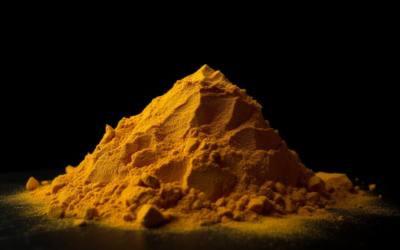What are the health benefits of L-arginine?
L-arginine, health benefits
The amino acid L-arginine is an essential nutrient that has many health benefits. It is found in foods such as red meat, poultry, fish, and dairy products. The body needs it to make proteins and other important compounds. It also helps the body produce nitric oxide which helps regulate blood pressure and improve circulation. Studies have shown that supplementing with L-arginine can help reduce symptoms of heart disease, high cholesterol, diabetes, and erectile dysfunction.
One of the main health benefits of L-arginine is its ability to improve cardiovascular health. It helps relax the walls of arteries and veins which improves blood flow throughout the body. This can help reduce high blood pressure and prevent atherosclerosis or hardening of the arteries. In addition to this, it can also help reduce inflammation in the cardiovascular system which may lead to a reduced risk for stroke or heart attack.
Another benefit of L-arginine is its role in improving sexual performance in men suffering from erectile dysfunction (ED). Studies have shown that supplementing with L-arginine can increase levels of nitric oxide which helps relax smooth muscle tissue allowing for improved blood flow to the penis resulting in better erections. In addition to this, it may also help increase libido by boosting testosterone levels in men who are deficient in this hormone.
In conclusion, there are many health benefits associated with taking supplemental L-arginine including improved cardiovascular health, reduced inflammation, increased sexual performance for men suffering from ED as well as increased libido due to higher testosterone levels. For those looking for a natural way to improve their overall wellbeing then supplementing with L-arginine could be a great option worth considering!
What is the recommended dosage of L-arginine?
L-arginine, dosage
What is L-arginine? L-arginine is an amino acid that plays a role in many bodily functions. It helps to build proteins and aids in the production of nitric oxide, which helps to relax blood vessels and improve circulation. As such, it has been used as a supplement for various conditions including heart disease, high blood pressure, erectile dysfunction, and even infertility.
So what is the recommended dosage of L-arginine? The recommended daily dose of L-arginine varies depending on your age and health condition. Generally speaking, adults should take between 2 and 6 grams per day divided into two or three doses throughout the day. However, if you are pregnant or breastfeeding it’s best to consult with your doctor before taking any supplements.
It’s important to note that while L-arginine can be beneficial for some people, it may not be suitable for everyone. If you have any underlying medical conditions or are taking medications then you should speak with your doctor before starting any supplement regimen. Furthermore, if you experience any side effects such as nausea or headaches then stop taking the supplement immediately and contact your doctor right away.
What are the functions of L-arginine in the body?
L-arginine, body, functions
L-arginine is an amino acid that plays a vital role in the human body. It is found naturally in foods such as red meat, poultry, fish and dairy products. L-arginine has many important functions in the body including aiding muscle growth and repair, helping to regulate blood pressure levels and promoting healthy circulation.
One of the main functions of L-arginine is to help produce nitric oxide which helps relax blood vessels and improve circulation. This can help reduce high blood pressure levels by improving the flow of oxygenated blood throughout the body. Nitric oxide also helps to increase energy levels by providing more oxygen to muscles during exercise.
Another important function of L-arginine is its role in muscle growth and repair. It helps stimulate protein synthesis which aids in building new muscle tissue after exercise or injury. Additionally, it can help reduce fatigue during workouts by increasing energy production within cells for improved performance.
In summary, L-arginine plays a key role in many bodily processes including regulating blood pressure levels, improving circulation and aiding muscle growth and repair. For those looking to boost their health through nutrition or exercise regimes, supplementing with L-arginine may be beneficial for achieving desired results quickly and safely.
How should L-arginine be taken?
L-arginine, dosage, supplement
How should L-arginine be taken?
L-arginine is an amino acid that has been used for a variety of health benefits. It is often taken as a supplement to improve physical performance and increase energy levels. The recommended dosage of L-arginine varies depending on the individuals needs and goals. Generally speaking, it is best to start with a lower dose and gradually increase it over time.
When taking L-arginine as a supplement, it is important to follow the instructions on the product label carefully. It is usually recommended to take two capsules or tablets per day with meals or snacks. Some people may need more than this amount depending on their specific needs and goals. It is also important to drink plenty of water throughout the day when taking any kind of supplement in order to stay hydrated and help your body absorb the nutrients from the supplement more effectively.
It is also important to talk with your doctor before starting any new supplements, including L-arginine, especially if you have any existing medical conditions or are taking other medications. Your doctor can help you determine what dosage would be best for you based on your individual needs and health history. Taking L-arginine as directed can help ensure that you get all of its potential benefits without putting yourself at risk for any adverse side effects or interactions with other medications or supplements that you may be taking.
What are potential risks of consuming too much L-arginine?
L-arginine, potential risks
Consuming too much L-arginine can have potential risks for everyman. L-arginine is an amino acid that is found in many foods and is also available as a supplement. It has been used to treat a variety of medical conditions, including high blood pressure and erectile dysfunction. While it may have some benefits, consuming too much of it can be dangerous.
One potential risk of consuming too much L-arginine is that it can cause low blood pressure. This can lead to dizziness, lightheadedness, and fainting. Additionally, taking large doses of the supplement can increase the risk of bleeding or bruising due to its effect on clotting factors in the body. People with kidney disease should avoid taking large amounts of L-arginine because it could worsen their condition.
Another potential risk associated with consuming too much L-arginine is that it could interact with certain medications such as those used to treat diabetes or high cholesterol levels. Additionally, people who are pregnant or breastfeeding should not take large doses of this supplement as there is not enough research on its safety during these times. Finally, people who suffer from allergies should be cautious when taking this supplement as it may cause an allergic reaction in some individuals.
In conclusion, while there are some potential benefits associated with taking L-arginine supplements, there are also some risks involved if consumed in excess amounts by everyman audience . Therefore, anyone considering using this supplement should consult their doctor first before doing so to ensure they understand all the possible side effects and interactions that could occur when taking this supplement.
What are natural sources for L-arginine?
Natural Sources, L-arginine
L-arginine is an essential amino acid that plays a role in many bodily functions. It can be found naturally in certain foods and is also available as a dietary supplement. Knowing the natural sources of L-arginine can help you make sure you are getting enough of this important nutrient.
One of the best sources of L-arginine is red meat, such as beef and lamb. Other good sources include poultry, fish, dairy products, nuts, seeds, and legumes. These foods contain moderate to high amounts of L-arginine depending on the type and cut of meat or other food item consumed.
For vegetarians or those who prefer plant-based proteins, there are still plenty of natural sources for L-arginine. Soybeans and tofu are both excellent choices as they contain high levels of this amino acid. Other plant sources include pumpkin seeds, peanuts, almonds, walnuts, spinach and spirulina (a type of blue green algae). Eating a variety of these foods will ensure you get enough L-arginine in your diet without having to rely on supplements.


